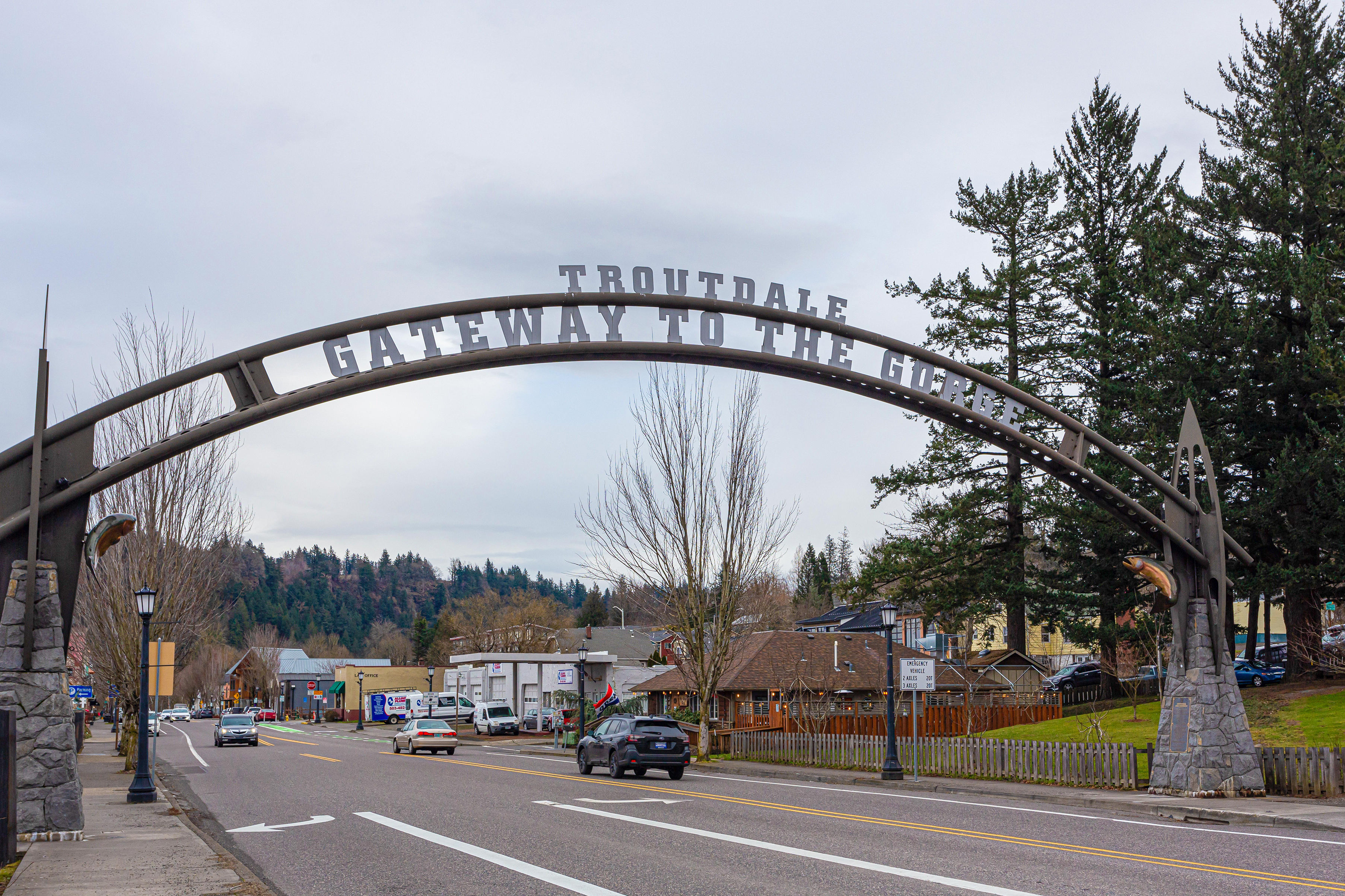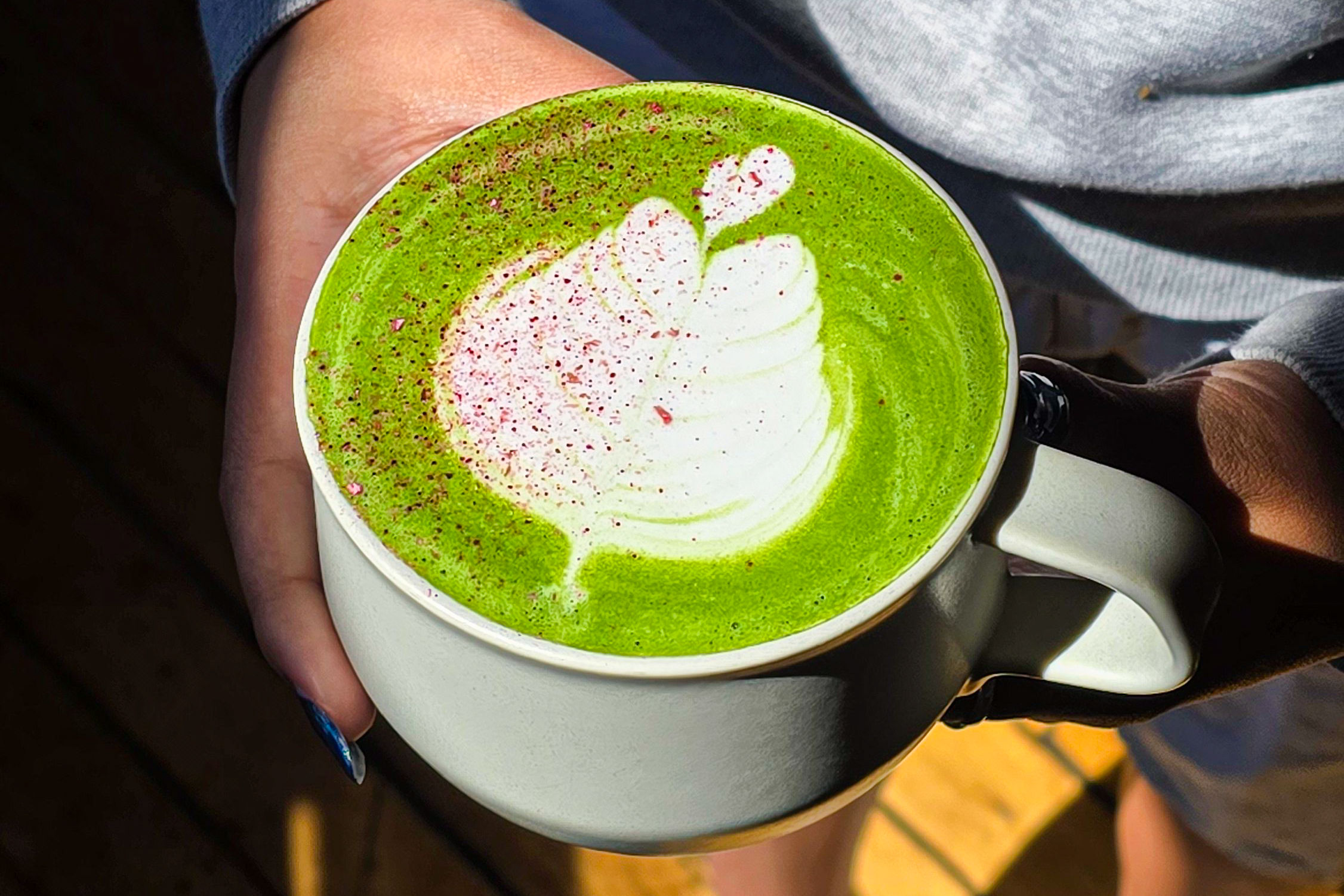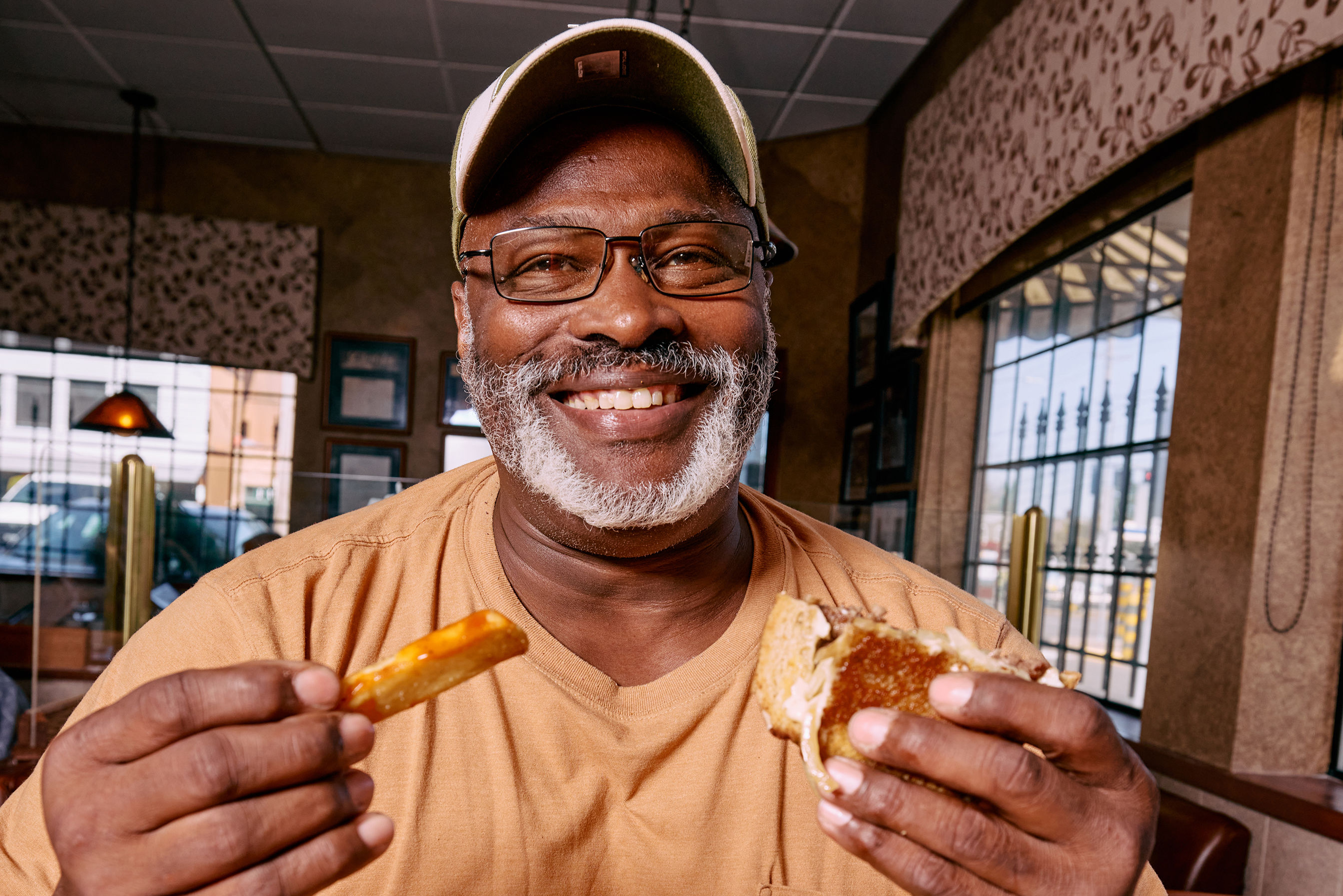The Incredible Tale of Bernardina, the Super-Rare Coffee You Can Drink in Portland Right Now
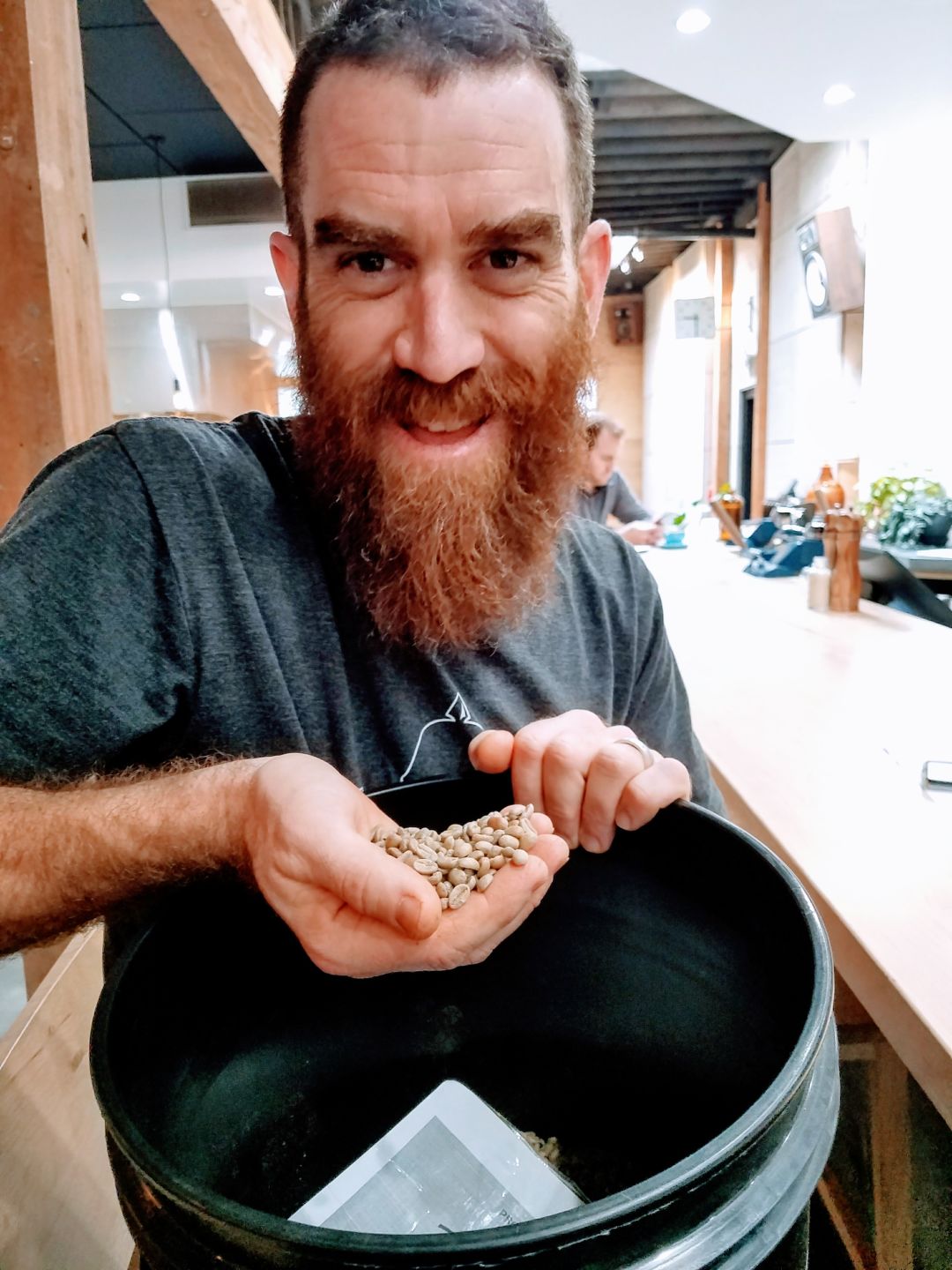
Proud Mary's Nolan Hirte shows off his five kilos of Bernardina coffee beans—it's the only bucket of the rare coffee in America.
Image: Kelly Clarke
Nolan Hirte can’t just serve you a cup of coffee. He wants you to experience it. The bushy-bearded Australian owner of Northeast Alberta’s new high-end coffee bar and brunch spot Proud Mary is an effusive compendium of coffee stories. They often star the farmers he visits around the world who grow his chosen obsession—tales punctuated with exclamations of joy and expletives the deeper he goes down the rabbit hole.
The Portland cafe, which aims to raise the level of service for coffee to that of wine or beer (complete with flights of heady small-batch coffees served in wine glasses) is the first stateside offshoot of Hirte's Melbourne roastery and cafe, which has garnered headlines for both its fancy Aussie fare and expensive, one-of-a-kind coffees.
How “one-of-a-kind”? Well, Hirte debuts a super-rare “Los Bellotos Bernardina” coffee this week at the Portland Proud Mary, a score from his longtime collaborators at El Salvador’s Cafè Pacas, which owns 19 coffee farms across the country. There’s only 10 kilos of Bernardina in the world this year, and Hirte has it all. And it’s the first time this coffee will be available in the United States—ever. It's available by the $10 cup at Proud Mary or in $30 take-home tins sold online—until it runs out. But, in true Hirte fashion, the roaster contends that those impressive facts don’t even begin to explain the magic of the Bernardina—a fantastical tale of continent-jumping mystery trees, DNA tests, and bean junkies. So, we’ll let him explain, in his own words:
I’ve got the most amazing coffee story. Everyone knows I love Geisha [the heady, floral, cult coffee bean varietal]; all the farmers know that’s what I want to buy. Some good friends of mine are the Pacas family in El Salvador. So Maria Pacas sends me an email: "Hey Nolan, I think I found Geisha [coffee trees] on Los Bellotos, a new farm we bought in El Salvador." No one has Geisha in El Salvador. It’s only just starting to appear there.*
Turns out it’s just five trees on this one farm—they've been there for 70 years. There was a farm manager that had been telling the owner for years that the fruit from those five trees ripen at a different time; they smell different. The rest of the farm grows bourbon [coffee varietal]. This is not bourbon. And the old owner says, "Whatever, just mix it in with the rest of the beans and send it out." Which is a pretty typical response.
[But the farm’s new owner] Maria Pacas is different. She’s very focused on producing special coffees. And the philosophy around what [Cafe Pacas] does is just amazing. Maria says: "Nolan, I want you to have this [mystery] coffee." The story goes that when the farmers separated the [coffee] cherries from those five trees for the very first time and put them through the pulper the pickers could smell mango-peach-floral aromas in the air and came wandering back to the pulper wondering what the fuck was going on. They could smell it from miles away.
She sends a sample [of the coffee] to me in Australia. Just 100 grams. We roast it, smell it, cup it….and we’re like, "Holy shit Maria. We think you may have found Geisha." It’s off the fucking wall—it tastes so, so good. I’m like, what the hell—is there more? I want it!
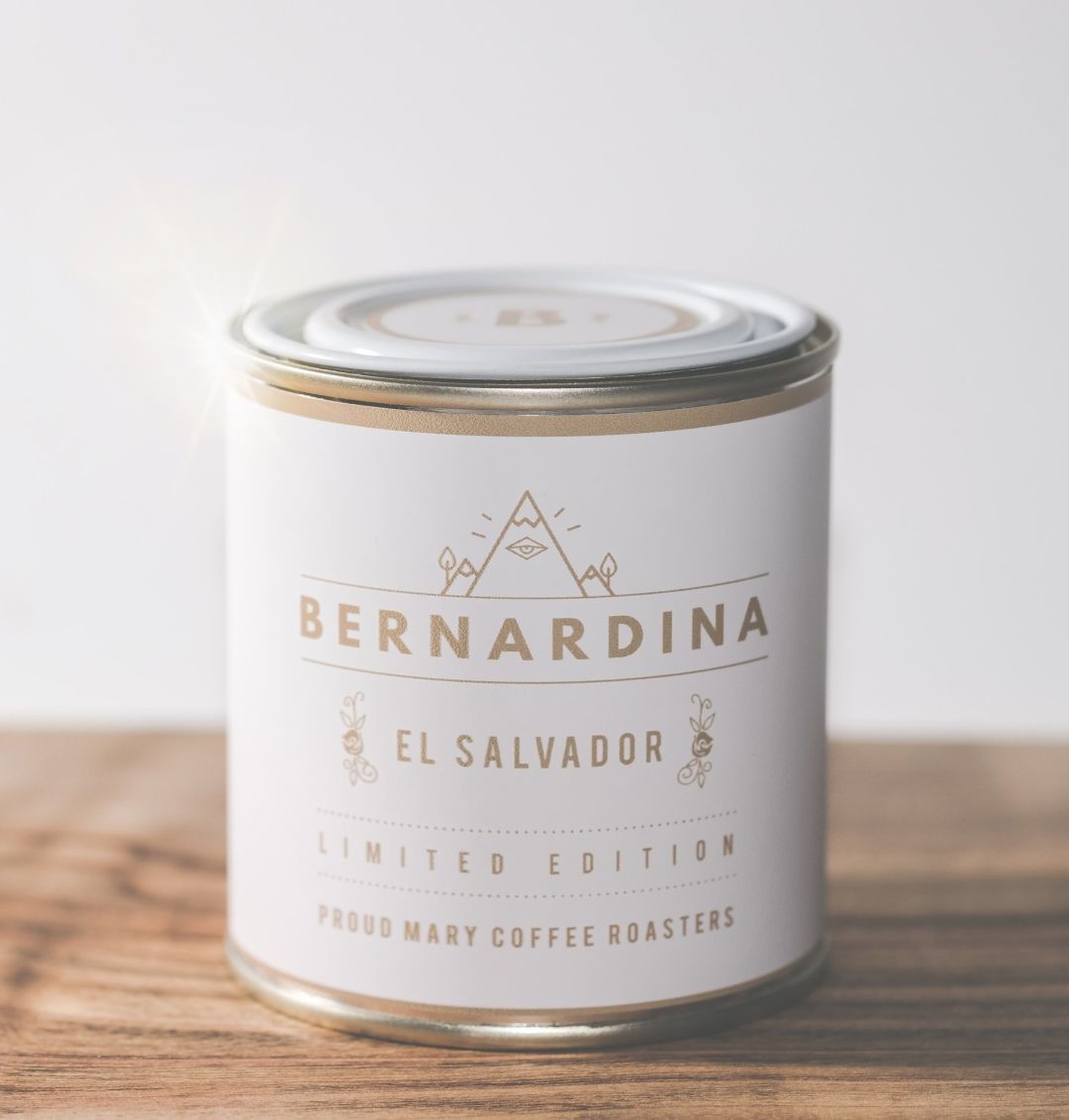
Image: Courtesy Proud Mary
I tell Maria: "Hey, I’m going to do my best to showcase this coffee and put it out on the world stage as much as I can. It’s a 95 point coffee any day of the week. It’s an amazing coffee, it’s incredible." So, she asks how much I wanna pay for it. Normally Maria sees around $2 a pound for her coffees. I know she’d be happy with $5 a pound. But I know I can sell it for $10 a cup at Proud Mary all day long. So, I say, "How does $25 per pound sound, Maria?" And I could hear her jaw drop. She’s like, "Really?!?" I’m like, "Why not? I’m going to sell it for $10 a cup. You should have the money. You found it. You’re the one who made it happen." That does two things: It nurtures our relationship. And I know that next year it’s gonna be my coffee. (I honestly want to see people get more money for what they grow. Farmers get screwed while we sit around and whinge about a $3 or $4 cup of coffee.)
The story gets better: I get back to Australia. And I’ve bought this coffee for $25 a pound not knowing what the fuck it is. Maybe it’s Geisha—I don’t know—I paid Geisha price for it (for a Panama Geisha tasting like that, I’d pay $25 a pound for it any day of the week). I get an email from Maria’s brother Alfredo, and he writes: "Hey, great news. It’s not Geisha." I’m like, "Fuck, what?" We had sent the beans to a lab in Italy to analyze the DNA structure. The lab sends back a report: the genetic makeup of the coffee is 70 percent Geisha...but 30 percent something different. The closest thing they could find to it was a varietal called agaro, which is from a region in Ethiopia called Agaro.
So...these five trees somehow make it from Agaro, Ethiopia to El Salvador in the 1930s, they survive undiscovered until two or three years ago, and the coffee [from these trees] cups up like a fucking Geisha. The lab says: "We don’t even have this in the database for coffee. It’s new. So what would you like to name it?"
Maria and Cafè Pacas named it Bernardina, after Ruperto Bernardino Merche, the farm manager of Finca Los Bellotos—the man who had been saying for all those years that these five trees were special.
This year we have five kilos of Bernardina at Proud Mary in Australia. And five kilos at Proud at Portland. That’s it. That’s all there is in the world. It tastes of lavender with a super creamy vanilla body to it, kinda like a Geisha but with an El Salvadoran buttery, caramel depth. It’s a special thing. And that’s the whole point of traveling, sniffing around, and making friends—you find things. We’re working together to find out what’s next.
*Geisha comes from a town called Gesha in Ethiopia. It was spread through Central America in the 1950s and now grows in Guatemala, Panama, and Costa Rica. Maria Pacas’s Bourbon varietal coffee is featured in Proud Mary’s house Angel Wings blend, along with coffees from Guatemala and Costa Rica.

